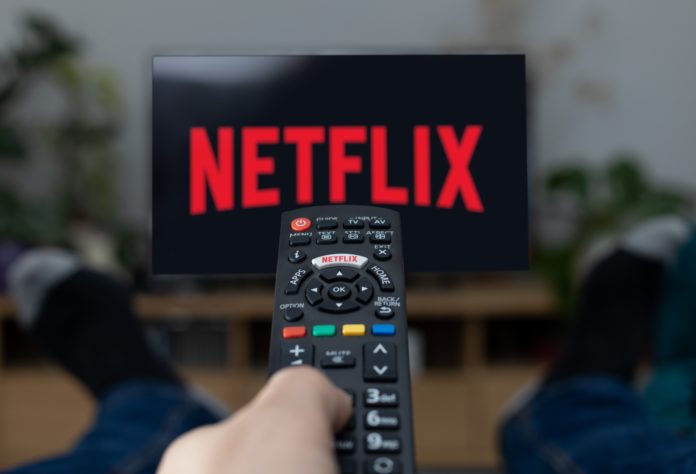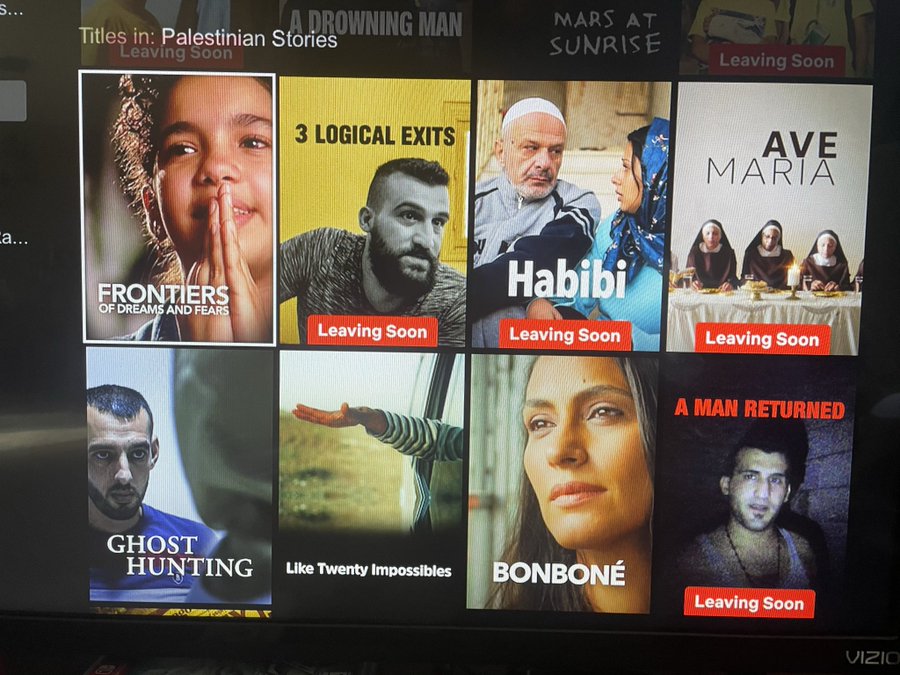The global streaming giant Netflix has deleted almost its entire library of Palestinian films without providing an explanation despite a public outcry.
Netflix deleted at least 19 films by Palestinian filmmakers or about Palestinian stories on October 13th and 14th.
It has stayed silent about why it made the move despite a global outcry from thousands of people via social media.
In a letter to Reed Hastings, Netflix Founder and Executive Chairman, a coalition of Muslim, Arab and other activist organisations demanded to know if pro-Israel lobbying organisations pushed Netflix to delete the films.
“We urge you to explain your decision and to reinstate every film by or about Palestinians that Netflix deleted last week. We are deeply concerned that Netflix’s deletion of nearly its entire library of Palestinian films will further marginalize Palestinian voices at a time when over two million Palestinians in Gaza are being subjected to genocide by the Israeli military.
“This erasure of Palestinian voices by Netflix follows many ugly decades of suppression of Palestinian viewpoints and narratives by Western news and entertainment media companies. The systemic suppression of Palestinian voices and censorship of content prevents U.S. and Western societies from being aware of and understanding the reality of Western governments’ support for Israel’s brutal policies of occupation, apartheid, ethnic cleansing, and now, genocide of Palestinians…
Subscribe to our newsletter and stay updated on the latest news and updates from around the Muslim world!
“For the past year, Israel has been perpetrating a genocide in Gaza, with the Palestinians death toll being potentially as high as 9% of the total population, or 186,000 dead, according to a piece published in the British medical journal Lancet. Given this horrifying reality, Netflix should be promoting – not deleting – Palestinian films so that more people can learn about Palestinian life under Israeli military domination and occupation, especially given the International Court of Justice’s advisory opinion that the Israeli occupation is illegal, a grave human rights violation, and must end.”
Meanwhile, there are still plenty of films about Israel and the Holocaust still streaming on Netflix such as documentaries like “The Last Days” which offers first-hand accounts from Holocaust survivors.
Netflix has also been involved in or has distributed shows with significant Israeli involvement or adaptations from Israeli content. Shows like “Fauda” highlight the platform’s interest in Israeli storytelling, particularly those dealing with narratives involving the Israeli-Palestinian conflict or life in Israel.
Critics say that by showcasing Israeli series, Netflix contributes to what could be seen as cultural diplomacy or soft power, where cultural products (like TV shows) influence perceptions about a country.
























